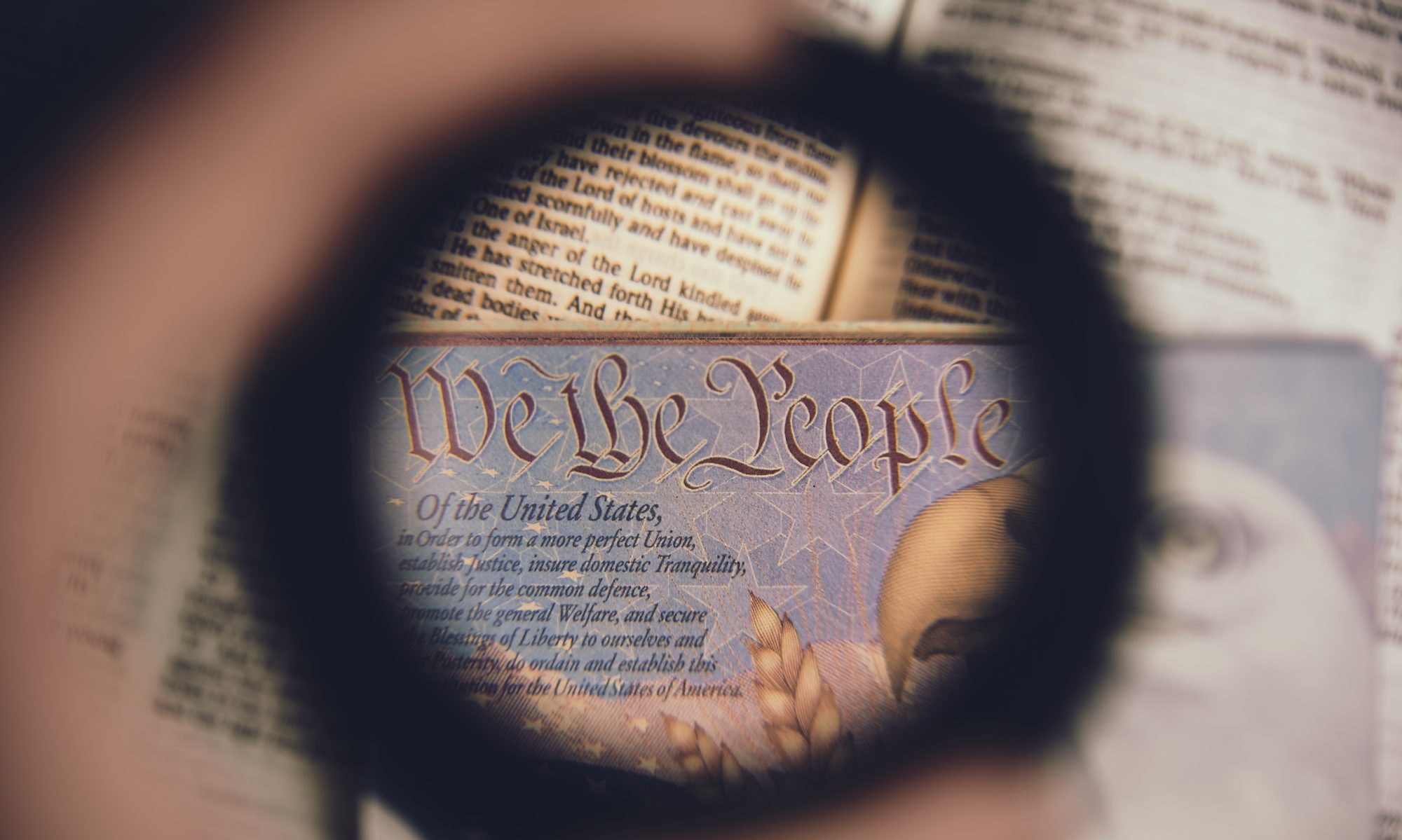By: Rob Natelson

You often hear that an action is “constitutional” or “unconstitutional.” More rarely, you hear the term “extra-constitutional.” Exactly how do these words differ?
An action is constitutional if taken in accordance with a governing constitution. The governing constitution may be written or unwritten. In Britain, to become law a bill must pass the House of Commons and (usually) the House of Lords, and then be approved by the Queen. That is the constitutional procedure. An attempt to enact a law purely by passage in the House of Lords would be unconstitutional.
Of course, a constitutional rule may be changed. In the 18th century, it was unconstitutional to make a law unless both the House of Commons and the House of Lords approved. In the 19th and 20th centuries, however, the rules were changed to allow lawmaking in certain circumstances without the consent of the Lords. That procedure thereby became constitutional.
The same general principle applies to written constitutions. Under the U.S. Constitution, a law that has passed the House and Senate and been signed by the president is constitutional unless it is inconsistent with some other term of the Constitution. A measure that attempted to ban free speech for all Democrats would be unconstitutional as violating the First Amendment, even if it somehow managed to win approval of Senate, House, and president.
In our federal system a state measure may be constitutional under the U.S. Constitution but unconstitutional under the basic law of the state—or vice versa. For example, nothing in the U.S. Constitution bans states from making gifts of public money to private persons or entities.
As far as that document is concerned, a state legislative act making such a grant is perfectly constitutional. However, some state constitutions do contain provisions banning gifts of public money to private persons or entities. In that case, such a grant is unconstitutional at the state level, even if perfectly legal at the federal level. (Note: In some states with constitutional provisions of this kind, activist courts have gutted them.)
On the other hand, suppose a state legislature adopted a “bill of attainder”—a legislative measure declaring a person to be a felon. If the state’s constitution does not contain an express or implied ban on such measures, then it would be constitutional at the state level.
But it is unconstitutional at the federal level, because the U.S. Constitution forbids states from adopting bills of attainder. In this instance, the federal document controls.
Of course, an enactment also may be unconstitutional under the basic laws of both the state and federal governments. Most, if not all, state constitutions protect free speech, so a law banning speech by Democrats would be unconstitutional at both levels.
Finally, we come to the term extra-constitutional. This refers to an action that is simply outside the purview of the governing constitutions. For example, American constitutions have nothing to say about whether you must or must not wear a hat. Your decision on that subject is extra-constitutional. (Some would argue that it is covered by the Ninth Amendment, but I disagree for reasons outlined in my book, The Original Constitution: What It Actually Said and Meant.)
Here’s another example: The U.S. Constitution authorizes, under certain circumstances, three kinds of conventions (ad hoc meetings for specific political purposes). Article V authorizes both a “Convention for proposing Amendments” and state conventions for ratifying proposed amendments. Article VII authorizes state conventions for ratifying the Constitution itself. Calling any of those gatherings in compliance with the Constitution’s rules is, of course, constitutional.
But the U.S. Constitution does not authorize a constitutional convention—that is, a gathering charged with drafting and proposing an entirely new basic law. If the states wished, they could call such a meeting, but doing so would be extra-constitutional. Indeed, states have done so on two occasions: Virginia called, and 12 states, staffed the 1787 constitutional convention outside the Articles of Confederation. And in 1861, seceding southern states called and staffed a constitutional convention in Montgomery, Alabama. Both of these actions were extra-constitutional.
An extra-constitutional action may be legal or illegal under the law of the prevailing government (“positive law”). Deciding whether to wear a hat is both extra-constitutional and legal. Similarly, because the Articles of Confederation comprised a mere treaty or league rather than a true government, it was perfectly legal for the sovereign states to hold the 1787 Constitutional Convention and then set aside the Articles in favor of the convention’s proposal. On the other hand, the U.S. Constitution rendered it illegal for the southern states to implement the Montgomery convention’s proposed constitution.
The right of revolution defended in the Declaration of Independence is the American people’s ultimate extra-constitutional remedy. Of course, revolutions violate the prevailing government’s positive law. But as the Founders recognized, sometimes a government becomes so oppressive that natural law permits a people to override positive law.
Rob Natelson
In private life, Rob Natelson is a long-time conservative/free market activist, but professionally he is a constitutional scholar whose meticulous studies of the Constitution’s original meaning have been repeatedly cited in U.S. Supreme Court opinions and published or cited by many top law journals (See: https://i2i.org/author/rob/) He co-authored The Origins of the Necessary and Proper Clause (Cambridge University Press) and The Original Constitution (Tenth Amendment Center). He was a law professor for 25 years and taught constitutional law and related courses. He is the Senior Fellow in Constitutional Jurisprudence at Colorado’s Independence Institute.
